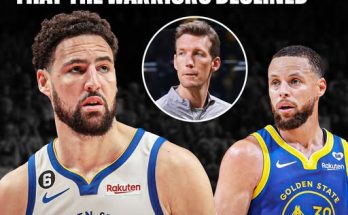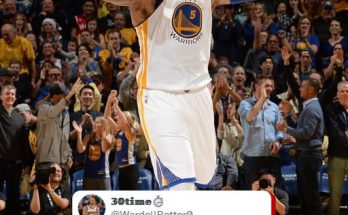Weighing Pros, Cons of Rangers Signing Conor Sheary to PTO
The New York Rangers’ decision to offer a professional tryout (PTO) contract to veteran winger Conor Sheary ahead of the 2025–2026 NHL season has sparked significant discussion among analysts and fans alike. With the Rangers looking to round out their bottom-six forward group and inject depth ahead of another playoff push, Sheary’s inclusion in training camp comes as both a strategic roster evaluation and a potential low-risk addition. While on the surface this may seem like a routine depth move, it raises broader questions about roster construction, youth development, and playoff preparedness.
Sheary, 33, enters Rangers camp with a well-earned reputation as a dependable two-way forward who has experienced success at the highest levels of the sport. A two-time Stanley Cup champion with the Pittsburgh Penguins (2016 and 2017), Sheary has spent the better part of a decade proving he can contribute in multiple roles—whether on a scoring line with elite talent or grinding out shifts in a bottom-six position. Known for his speed, versatility, and work ethic, he is the type of player coaches value for his consistency and lack of ego. But at this stage of his career, the question remains: does Sheary offer the right fit for a Rangers team loaded with emerging young talent and poised for a deep postseason run?
Let’s take a closer look at the pros and cons of the Rangers bringing Conor Sheary into the fold via a PTO.
Sheary’s most significant asset may be his championship pedigree. He was a key contributor during Pittsburgh’s back-to-back Stanley Cup runs, recording 10 points in 23 playoff games in 2016 and providing valuable secondary scoring and defensive responsibility. He understands the high-stakes pressure of playoff hockey and has a clear track record of responding well in tight situations. For a Rangers team that has struggled to find sustained playoff success in recent seasons, adding a veteran who’s been through deep runs can be invaluable—not just for what he brings on the ice, but for his voice in the room.
The NHL postseason is a different beast, and players like Sheary—who have lived through the wars of spring hockey—often bring poise and perspective when the stakes rise. His presence in the locker room could serve as a stabilizing force, especially for younger players experiencing playoff pressure for the first or second time.
While Sheary has had flashes of offensive output—his career-best season came in 2016–2017 when he posted 53 points in 61 games alongside Sidney Crosby—his production has largely declined in recent years. Over the last two seasons combined, he’s hovered around the 20–25 point range while averaging fewer than 14 minutes of ice time per game. In today’s NHL, where bottom-six forwards are increasingly asked to provide secondary scoring, Sheary’s ability to consistently generate offense is questionable.
The Rangers already have limited offensive production from their third and fourth lines, and bringing in a veteran who likely won’t significantly move the needle in terms of scoring could be seen as a missed opportunity to try younger players with higher upside in those roles.
One of Sheary’s most attractive attributes is his versatility. He can play both wings and has even filled in at center in a pinch. He’s been used on every line throughout his career, capable of skating alongside elite scorers or providing responsible shifts in defensive situations. For a coach like Peter Laviolette, who values flexibility and the ability to adjust matchups on the fly, Sheary could be a useful chess piece.
This versatility is particularly valuable in a long regular season, where injuries and cold streaks inevitably force lineup changes. Having a player like Sheary who can be plugged into various roles without disrupting line chemistry is a clear benefit—especially when the alternative is relying solely on inexperienced call-ups.
Perhaps the most significant argument against signing Sheary to a contract following his PTO is the potential blockage of young talent. The Rangers have a highly regarded pipeline of forwards, including Brennan Othmann, Will Cuylle, and Adam Sýkora, all of whom are pushing hard for full-time NHL roles. Giving a roster spot to a veteran on the downswing of his career could limit ice time and developmental opportunities for one of these younger players.
The Rangers are at a critical juncture where balancing veteran presence with youth development is essential to long-term success. While a player like Sheary might offer more reliability in the short term, the long-term ceiling of players like Othmann is considerably higher. Management and coaching staff must weigh whether it’s more beneficial to allow a young player to grow into a role, even with mistakes, or to plug a gap with a known but limited quantity.
The beauty of a PTO is that there’s no commitment—if Sheary doesn’t fit the team’s needs during camp or preseason, he can be released without financial penalty or long-term cap implications. From that standpoint, this is a no-risk evaluation opportunity. It also allows the Rangers to compare Sheary side-by-side with their younger options and evaluate his game fitness and competitiveness firsthand.
In addition, Sheary has a sterling reputation as a teammate and professional. He’s known for his positive attitude, high-effort shifts, and being a low-maintenance player who doesn’t disrupt locker room chemistry. That’s especially important in a market like New York, where distractions are magnified and team culture is paramount.
At 5-foot-8, 179 pounds, Sheary has always relied on his speed and intelligence to be effective. But as he has aged, there are legitimate concerns that he’s lost a step. While still capable in short bursts, his overall foot speed and ability to keep pace in a high-tempo system may not be what it once was. The Rangers have transitioned toward a faster, more aggressive forechecking style under Laviolette, and Sheary may struggle to keep up with younger, faster opponents.
Moreover, his smaller frame means he’s less likely to be effective in board battles or in front of the net. In a bottom-six role—where physicality, grit, and defensive tenacity are often prerequisites—this could become a liability. The Rangers already have several smaller forwards in the lineup; adding another who doesn’t provide a major scoring boost might imbalance the forward group.
Sheary isn’t vocal in the traditional sense, but he leads by example. He’s always been a “glue guy”—someone who does the little things right and shows up prepared every night. For a young player-heavy team like the Rangers, that kind of presence is valuable. He understands his role, doesn’t take shifts off, and plays within the system.
In a room with big personalities and stars, a quiet, consistent veteran can be a crucial balance. Players like Sheary help set a tone at practice and in meetings, modeling the habits that coaches preach. While not a headline-grabber, this kind of leadership can be essential over the grind of an 82-game season.
Ultimately, the Rangers’ decision to bring in Conor Sheary on a PTO is a calculated bet. They’re looking to evaluate a veteran with championship pedigree, strong fundamentals, and positional versatility—without making any immediate commitment. If he impresses, he could provide affordable, dependable depth in a season where depth will again play a pivotal role. If he doesn’t, the team parts ways with no downside.
However, the Rangers must be careful not to default to veteran security at the expense of their emerging talent. Young players need real opportunity to develop, and this season could be pivotal in determining whether players like Othmann or Cuylle are long-term solutions in the middle-six forward group. Every roster spot matters, and each choice signals the organization’s priorities.
If Sheary proves he still has enough left in the tank and can contribute meaningfully to a contending roster, he may well earn a spot. If not, his PTO serves its purpose as a measuring stick—both for himself and for the team’s next generation of stars.
Either way, the Rangers are entering camp with a competitive atmosphere and an eye toward excellence. And for Conor Sheary, this PTO could be the last chance to extend a career that’s already included championships, big moments, and the respect of locker rooms league-wide. Whether it ends in a contract or a handshake, he’ll approach it the only way he knows how—with determination, professionalism, and zero excuses.



